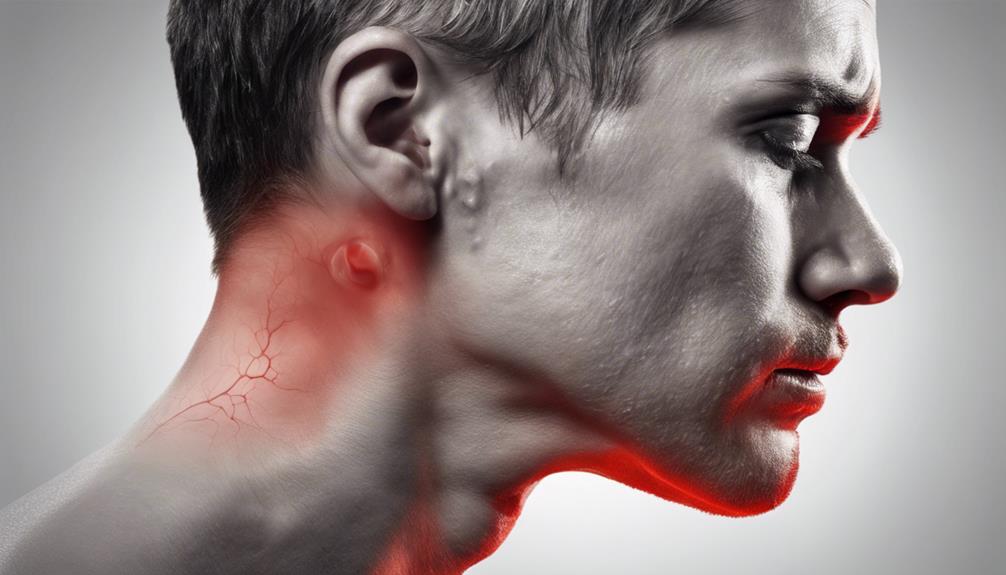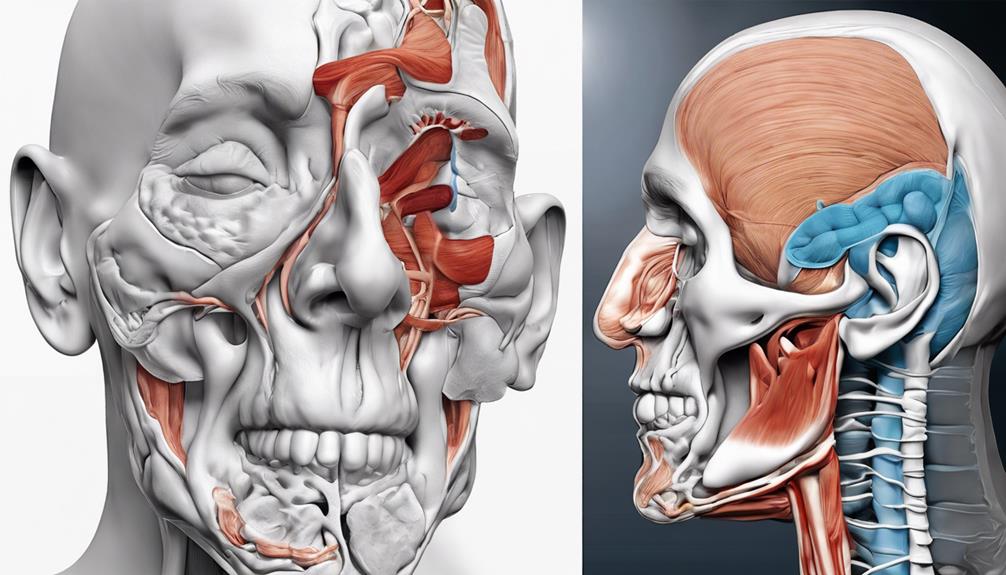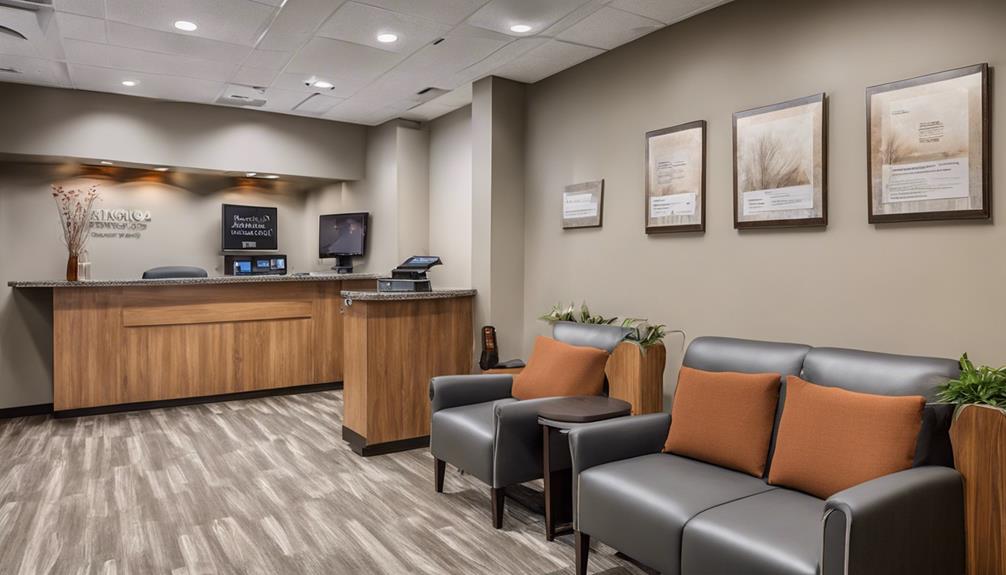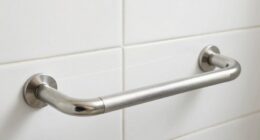When it comes to sinus infections, their impact on hearing abilities may be more significant than anticipated. Investigating the link between sinus problems and hearing impairment is a topic that warrants further investigation.
Understanding how sinus inflammation can affect our ability to hear clearly is crucial for managing potential complications.
So, what exactly happens when sinus problems start interfering with our hearing abilities? Let's shed some light on this intriguing correlation and discover ways to address and prevent potential hearing loss associated with sinus infections.
Key Takeaways
- Sinus infections can cause Eustachian tube dysfunction affecting hearing.
- Prompt treatment by ENT specialists is crucial for managing sinus-related hearing issues.
- Recognizing symptoms like ear pressure and muffled hearing is vital.
- Medications, surgery, and hearing aids are treatment options for sinus-related hearing loss.
Impact of Sinus Infections on Hearing
When sinus infections occur, they can directly affect our hearing ability by causing dysfunction in the Eustachian tube, leading to pressure changes in the middle ear.
Sinusitis, the inflammation of the sinuses, can result in temporary hearing loss due to the Eustachian tube not functioning correctly. This tube normally helps regulate pressure in the middle ear, but when impacted by sinus issues, it can lead to discomfort and muffled hearing.
The pressure changes within the ear caused by sinus infections can also result in ear pain, further complicating the hearing experience. It's crucial to address sinus infections promptly to alleviate these symptoms and prevent potential complications.
Seeking medical attention, especially from an ENT specialist, can provide tailored treatment to manage sinus-related hearing concerns effectively. By understanding the impact of sinus infections on our hearing, we can take proactive steps to preserve our auditory health and overall well-being.
Symptoms of Sinus Infection Hearing Loss

Experiencing sinus infection hearing loss can present symptoms such as ear pressure, muffled hearing, tinnitus, and difficulties in sound perception. These symptoms can significantly impact one's quality of life, making everyday activities challenging. Here is a table summarizing the key symptoms associated with sinus infection hearing loss:
| Symptoms | Description |
|---|---|
| Ear Pressure | Feeling of fullness or pressure in the ears |
| Muffled Hearing | Sounds may seem distorted or unclear |
| Tinnitus | Ringing, buzzing, or hissing noises in the ears |
| Sound Perception | Difficulty in understanding speech or hearing sounds |
Recognizing these symptoms early on is crucial for seeking prompt treatment. Eustachian tube dysfunction caused by sinusitis is often at the root of these issues. Consulting an ENT specialist for proper management of sinus-related hearing concerns can lead to effective solutions and improved quality of life.
Treatment Options for Hearing Loss
Discussing treatment options for hearing loss caused by sinus infections involves exploring various medical interventions. These include medications, surgical procedures, and hearing aids. When sinus infections lead to hearing loss, healthcare providers may prescribe antibiotics to combat the infection and steroids to reduce inflammation in the sinuses, helping to alleviate the impact on hearing.
In cases of chronic sinusitis contributing to hearing problems, sinus surgery or procedures like balloon sinuplasty may be recommended to address the underlying issue. Additionally, hearing aids can be beneficial in improving auditory perception for individuals experiencing hearing loss related to sinus infections.
Seeking guidance from an otolaryngologist, also known as an ENT specialist, is essential for an accurate diagnosis and tailored management plan for sinus infection-induced hearing difficulties. Properly addressing the sinus infection through appropriate medical care is crucial in preventing further deterioration of hearing loss and promoting overall ear health.
Connection Between Sinusitis and Hearing Loss

Sinusitis can directly impact hearing by causing temporary or permanent loss due to Eustachian tube dysfunction and middle ear blockages from swelling. When the sinuses are inflamed or infected, this can lead to increased pressure within the sinuses, affecting the Eustachian tubes' ability to properly regulate air pressure in the middle ear. As a result, individuals may experience symptoms like ear pain, hearing loss, and a feeling of fullness or pressure in the ears due to blocked sinuses.
To illustrate the connection between sinusitis and hearing loss, consider the following table:
| Aspect | Impact |
|---|---|
| Sinus Infections | Can lead to Eustachian tube dysfunction, affecting middle ear pressure and hearing ability. |
| Otitis Media | Middle ear blockages from sinus swelling can result in temporary or permanent hearing loss. |
| Treatment Plan | Prompt medical intervention for sinus infections is crucial to prevent complications in hearing health. |
Understanding how sinus issues can affect hearing underscores the importance of addressing sinusitis promptly with an appropriate treatment plan to preserve hearing function.
Preventing Hearing Loss From Sinus Infections
Taking immediate action against sinus infections can be key in preventing potential hearing loss. Sinus infections can lead to middle ear infections, causing ear pain and pressure that may result in hearing problems. Addressing sinusitis promptly is crucial to prevent hearing loss.
Sinusitis can also contribute to otitis media, further increasing the risk of hearing complications. Utilizing medications like decongestants, antihistamines, and mucolytics can help manage sinus infections and preserve hearing. For chronic sinusitis cases, balloon sinuplasty may be considered to prevent potential hearing issues.
Timely and proper treatment of sinus infections can significantly improve hearing outcomes, while untreated infections may lead to temporary or permanent hearing loss. By recognizing the connection between sinusitis and hearing loss, individuals can take proactive steps to protect their hearing health.
Frequently Asked Questions
How Can I Fix My Hearing Loss From a Sinus Infection?
We can address hearing loss by seeking prompt medical attention from a specialist. Early treatment for sinus infections and related issues is crucial for resolving temporary hearing problems.
Medications like decongestants or mucolytics may aid in improving hearing. In some cases, minimally invasive procedures like balloon sinuplasty can help with chronic sinusitis.
How Do You Unclog Your Ears From Congestion?
When dealing with ear congestion, we find relief by trying simple methods. The Valsalva maneuver and Toynbee maneuver are effective for unclogging ears. Applying a warm compress can also help ease congestion and pressure.
Over-the-counter decongestants or nasal sprays are quick remedies. For a more natural approach, steam inhalation with essential oils like eucalyptus can open up nasal passages. These methods offer simple solutions to alleviate ear congestion.
How Long Do Clogged Ears Last After Sinus Infection?
After a sinus infection, clogged ears typically last from a few days to a couple of weeks. The duration depends on the severity and length of the infection. As sinusitis symptoms improve with proper treatment, ear congestion usually resolves.
However, in chronic or severe cases, clogged ears may persist longer. Seeking medical evaluation can help determine the cause of prolonged ear congestion.
Can Sinus Infection Cause Permanent Ear Damage?
Absolutely, sinus infections can potentially cause permanent ear damage if left untreated. The infection can lead to complications like inner ear inflammation or prolonged Eustachian tube dysfunction, impacting hearing.
Seeking timely medical attention is crucial to prevent any lasting harm. Remember, taking care of sinus infections promptly isn't just about comfort—it's about safeguarding your long-term hearing health.
Conclusion
In conclusion, sinus infections can cause temporary hearing loss due to pressure changes in the ear. Prompt treatment is crucial to prevent potential permanent damage.
Remember, managing sinusitis with medication and proper care can help maintain healthy hearing.
Don't let sinus issues sour your soundscape – stay vigilant and seek help when needed to safeguard your hearing health.









